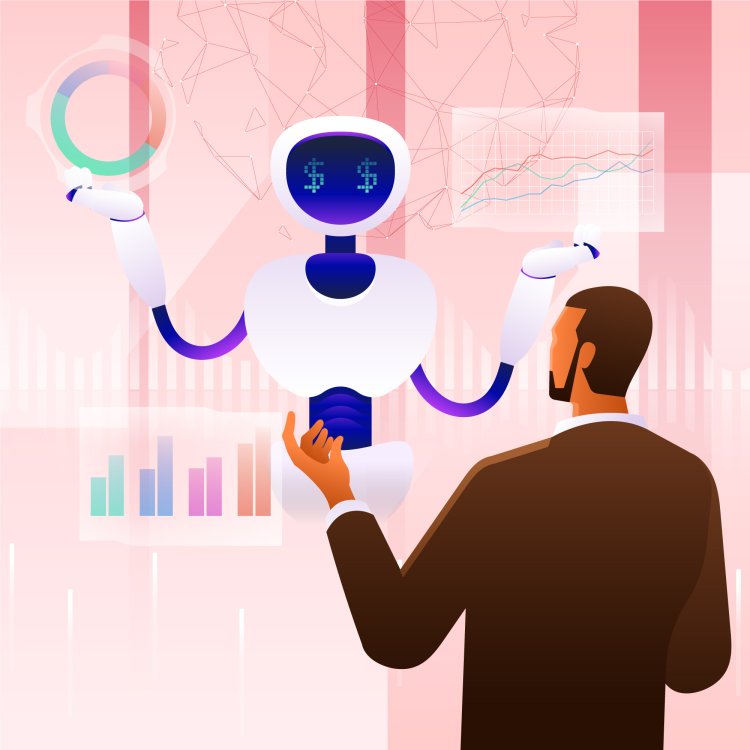How AI Development Solutions Are Powering Smarter Business Strategies

Artificial intelligence (AI) has evolved into a transformative technology that reshapes how businesses operate and strategize. Companies are increasingly leveraging AI development solutions to enhance decision-making, optimize operations, and gain a competitive edge. By integrating AI into their strategies, businesses can analyze complex data, predict trends, and automate processes with remarkable efficiency.
In this article, we delve into how AI development solutions are driving smarter business strategies, with real-world applications and insights into future trends.
What Are AI Development Solutions?
AI development solutions refer to the suite of technologies, tools, and services designed to create AI-powered applications. These include machine learning algorithms, natural language processing (NLP), predictive analytics, computer vision, and robotics. These solutions empower businesses to automate tasks, extract valuable insights, and create intelligent systems tailored to their unique needs.
The Role of AI Development Solutions in Modern Business Strategies
1. Enhancing Data-Driven Decision Making
One of the primary advantages of AI is its ability to process and analyze vast amounts of data quickly and accurately. Businesses can leverage AI development solutions to uncover patterns, predict future trends, and make informed decisions.
Example:
- Retail: AI analyzes customer preferences to optimize inventory and pricing strategies.
- Finance: Predictive analytics models detect potential risks and market opportunities.
Benefits:
- Improved accuracy in forecasting.
- Reduced reliance on intuition-based decisions.
2. Personalizing Customer Experiences
AI is revolutionizing customer engagement by delivering personalized experiences at scale. Through AI-powered recommendation engines and sentiment analysis tools, businesses can understand customer preferences and behavior.
Applications:
- E-commerce: Tailored product recommendations based on browsing history.
- Banking: Customized financial advice through chatbots and virtual assistants.
Outcome:
- Higher customer satisfaction and retention.
- Increased revenue through targeted marketing.
3. Optimizing Operational Efficiency
AI development solutions streamline complex workflows, reduce manual effort, and eliminate inefficiencies. By automating routine tasks, businesses can allocate resources more effectively and focus on strategic goals.
Use Cases:
- Manufacturing: AI-driven predictive maintenance reduces downtime and operational costs.
- Logistics: Route optimization algorithms enhance delivery speed and reduce fuel consumption.
Future Implications:
AI will play a pivotal role in fully automated supply chains and smart factories.
4. Driving Innovation in Product Development
AI fosters innovation by enabling rapid prototyping, design optimization, and performance analysis. Businesses are leveraging AI to identify market gaps and create products that meet evolving customer demands.
Examples:
- Automotive: AI-powered simulations for vehicle safety testing.
- Healthcare: Drug discovery using machine learning models.
Advantage:
Faster time-to-market and higher-quality products.
Industry-Specific Applications of AI Development Solutions
1. Healthcare
AI is revolutionizing healthcare by enabling accurate diagnostics, personalized treatments, and efficient administrative workflows.
Examples:
- AI-powered imaging systems detect diseases like cancer in their early stages.
- Chatbots streamline patient interaction and appointment scheduling.
Outcome:
Enhanced patient care and reduced operational costs.
2. Retail and E-Commerce
Retailers are adopting AI development solutions to predict demand, manage inventory, and optimize the shopping experience.
Applications:
- Dynamic pricing algorithms.
- AI-driven virtual shopping assistants.
Benefits:
- Increased sales and customer loyalty.
- Improved inventory management.
3. Finance
AI is transforming the financial sector by automating processes, mitigating risks, and delivering personalized financial services.
Use Cases:
- Fraud detection systems.
- AI-driven credit scoring and lending decisions.
Advantage:
Enhanced security and operational efficiency.
4. Education
AI is personalizing learning experiences and improving administrative efficiency in the education sector.
Applications:
- Adaptive learning platforms tailored to individual student needs.
- AI-powered administrative tools for scheduling and resource management.
Outcome:
Improved educational outcomes and reduced workload for educators.
Future Trends in AI Development Solutions
1. Integration with Emerging Technologies
AI is increasingly being integrated with other technologies like the Internet of Things (IoT), blockchain, and augmented reality (AR). These integrations enhance the capabilities of AI systems and create new opportunities for innovation.
Examples:
- Smart homes powered by AI and IoT.
- Blockchain-enabled secure data sharing for AI systems.
2. Explainable AI (XAI)
As AI becomes more prevalent, there is a growing demand for transparency and accountability. Explainable AI focuses on making AI systems more understandable to users and stakeholders.
Benefits:
- Increased trust in AI solutions.
- Easier identification of biases and errors.
3. Ethical AI Development
With the widespread adoption of AI, ethical considerations are gaining prominence. Businesses are focusing on creating AI systems that are fair, unbiased, and compliant with regulations.
Key Areas:
- Mitigating algorithmic bias.
- Ensuring data privacy and security.
4. AI in Remote Work
The shift to remote work has accelerated the adoption of AI in virtual collaboration tools, workforce management, and cybersecurity.
Applications:
- AI-powered virtual assistants for scheduling and communication.
- Automated performance monitoring and feedback systems.
Future Outlook:
AI will continue to redefine how teams collaborate and operate remotely.
How to Choose the Right AI Development Solutions
Selecting the right AI development solutions is critical for achieving business objectives. Here are some factors to consider:
- Scalability: Ensure the solutions can grow with your business.
- Customization: Look for solutions tailored to your industry and needs.
- Vendor Expertise: Partner with experienced AI developers.
- Cost-Effectiveness: Evaluate the ROI of the solutions.
Conclusion
AI development solutions are at the forefront of business innovation, enabling organizations to streamline operations, deliver personalized experiences, and make data-driven decisions. From healthcare to retail, AI is transforming industries and setting new benchmarks for success.
As businesses continue to embrace AI, the focus will shift toward integrating emerging technologies, ensuring ethical practices, and enhancing transparency. By staying ahead of these trends, companies can leverage AI to drive smarter strategies and achieve sustainable growth.
The future of AI is bright, and its potential to reshape industries is limitless. Now is the time to invest in the right AI solutions and unlock new opportunities for success.
What's Your Reaction?






















